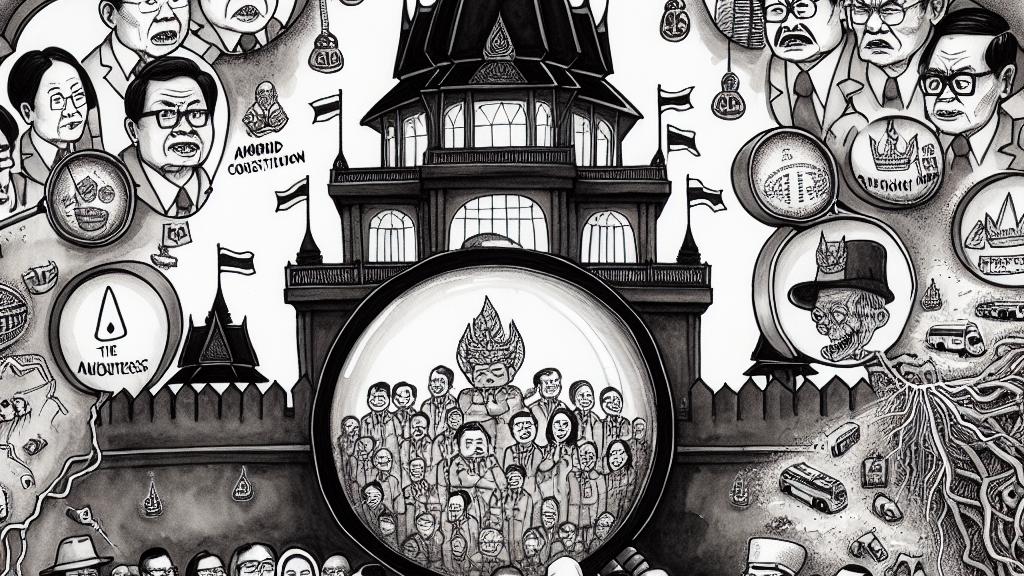PP Proposes Charter Amendment to Limit Ethics Violations Probes
Overview
- The People's Party (PP) in Thailand has fearlessly introduced a groundbreaking charter amendment.
- This initiative seeks to curtail the authority of the National Anti-Corruption Commission (NACC) over members of Parliament (MPs) and senators.
- By clarifying the definitions of ethical violations, the PP aims to foster greater accountability and integrity within the political system.

Political Climate in Thailand
In the ever-evolving political landscape of Thailand, where controversies often arise, the People's Party (PP) has taken a decisive step with its recent constitutional amendment proposal. This bill boldly addresses the crucial issue of ethical oversight by aiming to reduce the power of the National Anti-Corruption Commission (NACC) in probing MPs and senators for ethical misconduct. This move comes in light of widespread concerns over an alarming rise in frivolous allegations that threaten the stability and careers of elected officials. For instance, several politicians have found themselves ensnared in a web of unfounded claims, which some observers believe are politically motivated. To combat this disturbing trend, the PP hopes to implement clearer and more precise guidelines regarding what constitutes an ethical violation, thereby safeguarding the rights of lawmakers and fostering a more just political environment.
Contrasting Approaches: Pheu Thai Party's Perspective
At the same time, the ruling Pheu Thai Party is advocating for its version of charter amendments, setting the stage for a spirited political debate. Although both parties share the goal of enhancing ethical standards, the Pheu Thai draft lacks the clear-cut approach that characterizes the PP's proposal. As these two bills are discussed in Parliament, observers are keenly watching how party leaders articulate their visions and arguments, aware that the stakes are incredibly high. Imagine the clash of ideas as each party presents its perspective on accountability—drawing a sharp contrast not only in strategy but also in political philosophy. The outcome of this debate could reshape the ethical landscape of Thai politics, demonstrating to the electorate a commitment to integrity in governance.
Understanding the Importance of Ethical Standards
Ultimately, the ongoing discussions about ethical regulations highlight fundamental issues of governance and trust within Thai society. The proposals from both the PP and Pheu Thai Party illuminate the critical need for clear ethical guidelines that not only uphold democratic principles but also promote transparency in political processes. This moment in Thai politics represents more than just a legislative effort; it is a profound opportunity for citizens to reflect on the integrity of their political institutions. By defining ethical standards, the country can prevent corruption and reassure the public that their elected leaders are held accountable. This isn’t merely about amendments; it's about reinforcing a commitment to ethical governance, safeguarding democracy for future generations, and ensuring that Thailand emerges stronger and more unified.

Loading...